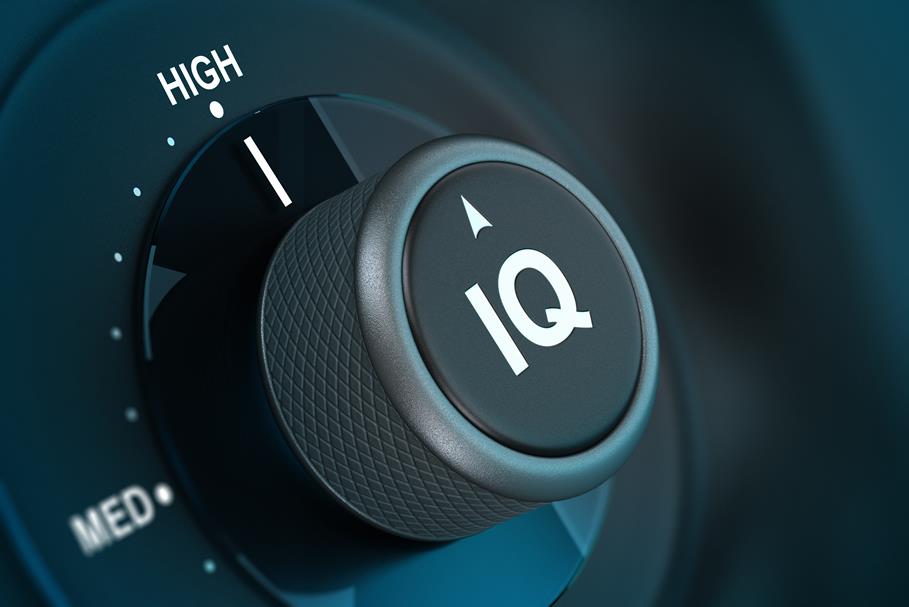How Is IQ Measured? Understanding Average and High IQ Scores

IQ, or intelligence quotient, is a widely used metric for gauging a person’s intellectual abilities and potential. It provides insight into cognitive skills such as reasoning, problem-solving, and logical thinking. However, IQ is not a standalone measure; it represents how an individual’s intellectual abilities compare to others in the same age group. Here, we’ll explore how IQ is measured, what average and high IQ scores mean, and some important nuances of the concept.
How IQ Scores Are Measured
IQ scores are determined through standardized tests designed to evaluate specific cognitive abilities. These tests measure skills such as verbal reasoning, mathematical ability, memory, and spatial awareness. Results are then compared to a bell curve distribution to determine the individual’s score relative to the population.
- The Bell Curve: IQ scores follow a bell curve, with the majority of people falling near the average. The peak of the curve represents the average IQ of 100. Most individuals score between 85 and 115, which accounts for roughly 68% of the population.
- Standard Deviations: Each standard deviation represents 15 IQ points. Scores between 70 and 130—or within two standard deviations—cover about 95% of the population. Scores below 70 or above 130 are considered outliers.
IQ Score Classifications
IQ scores are often classified into categories that provide insight into a person’s cognitive capabilities. Here is a general breakdown:
- Below 70: Low IQ – May indicate intellectual challenges.
- 70–85: Below Average – Slightly below typical reasoning skills.
- 85–115: Average IQ – Indicates standard problem-solving and reasoning abilities.
- 115–130: High IQ – Above-average cognitive skills, often linked to strong academic performance.
- 130–145: Very High IQ – Represents exceptional intellectual ability.
- Above 145: Gifted – Reflects extraordinary intellectual potential.

What Does an Average IQ Mean?
An average IQ score (85–115) reflects standard cognitive abilities for reasoning, problem-solving, and learning. People with average IQs can navigate daily challenges and pursue education and careers successfully. It’s important to remember that IQ tests primarily measure cognitive skills, leaving out many other facets of intelligence, such as creativity, social skills, and practical talents.
High IQ: What Does It Indicate?
Individuals with high IQs (115 and above) often excel in reasoning and problem-solving. Studies suggest that people with higher IQs tend to perform well academically, have better job prospects, and experience better overall health. However, a high IQ is not a guarantee of success. Traits such as motivation, perseverance, and emotional intelligence also play critical roles in achieving life goals.
David Perkins, a researcher at Harvard Graduate School of Education, aptly notes, “A high IQ is like height in a basketball player. It’s very important, all other things being equal. But all other things aren’t equal.”
Genius IQ: The Meaning of Exceptional Scores
The term "genius" is often associated with extraordinary intellectual or creative power. While there is no universally agreed-upon definition, a genius IQ score is generally considered to be above 140 or 160, depending on the context. However, genius is not solely defined by IQ. Talents in areas like music, art, or innovation can also signify genius-level abilities.
High IQ individuals sometimes join exclusive organizations that celebrate intellectual achievement. The most well-known of these is Mensa International, which accepts members with IQs in the top 2% of the population. Other high IQ societies include:
- Intertel: For individuals in the top 1%.
- Triple Nine Society: For those in the top 0.1%.
- Prometheus Society: An even more selective group requiring IQs in the top 0.003%.
- Mega Society: Reserved for individuals with IQs in the top 0.0001%.
Limitations of IQ as a Measure
While IQ tests provide valuable insights into cognitive abilities, they are not comprehensive measures of intelligence. IQ scores do not account for creativity, emotional intelligence, or practical skills—all of which are crucial for real-world success. For example, someone with an average IQ may excel as an artist or entrepreneur due to their creativity and determination.
Furthermore, IQ can fluctuate over time. Factors such as education, health, and mental stimulation can enhance cognitive abilities, while stress or lack of opportunity may hinder them. This fluidity suggests that intelligence is not fixed and that everyone has the potential for growth.
Related article: Is IQ Important?
How to Improve Cognitive Abilities
Although IQ scores reflect innate abilities to some extent, there are many ways to improve cognitive skills and brain function. Activities such as learning new languages, engaging in regular physical exercise, practicing mindfulness, and maintaining a healthy diet can boost mental performance. Lifelong learning and staying curious about the world are also powerful ways to nurture intellectual growth.
Related article: A Practical Guide to Improving Your IQ and Brain Function
The Takeaway
IQ scores offer valuable insights into cognitive potential, but they are just one piece of the puzzle. Intelligence is multifaceted, encompassing reasoning, creativity, emotional intelligence, and practical skills. Understanding IQ scores within the context of a broader definition of intelligence allows for a more balanced perspective on human potential.
By focusing on self-improvement, embracing lifelong learning, and recognizing the diverse ways people excel, individuals can unlock their full potential—regardless of their IQ score.
More useful resources:
» Einstein's IQ: The Genius Behind the Numbers» IQ Test for Kids
» Exercise Enhances Intelligence in Kids and Teens: A Key to Smarter, Healthier Futures
» IQ Scores Experience Unprecedented Decline: An In-Depth Analysis
» What Is the Highest IQ Ever Recorded?